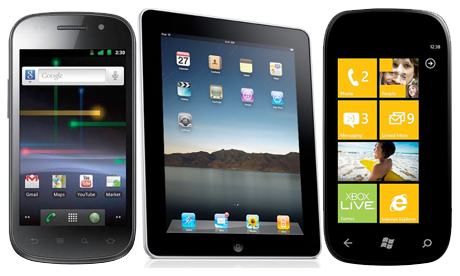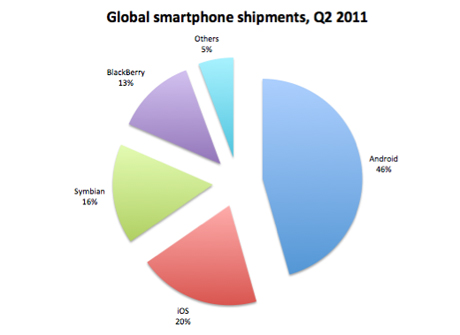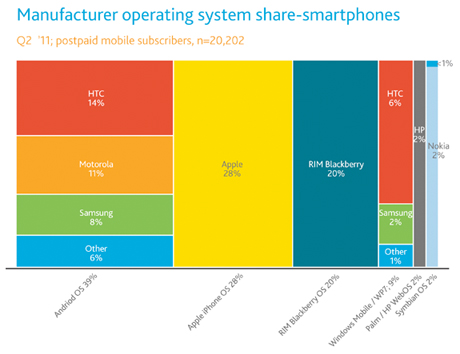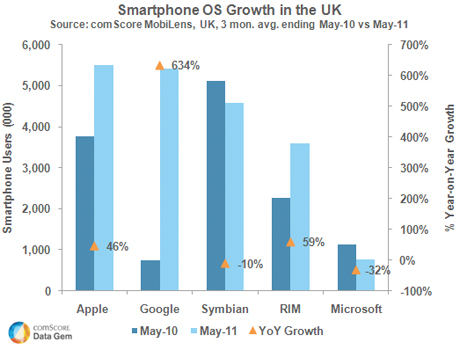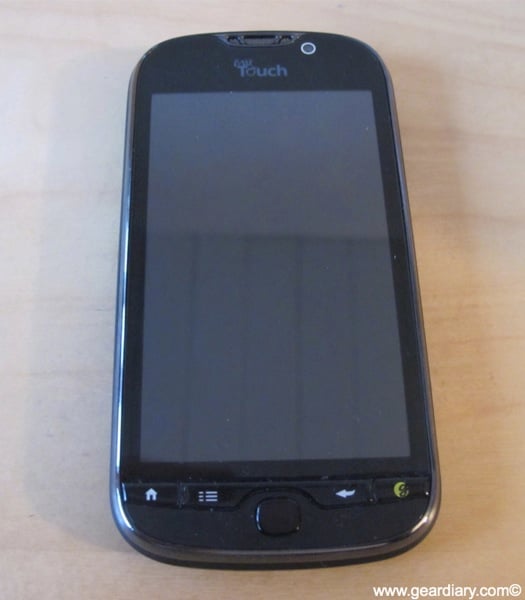Visa Unveils Incentives to Speed Shift to Mobile-Payment Systems
Visa Inc. (V) unveiled plans to encourage U.S. retailers to shift to checkout systems that let consumers pay using their mobile phones, as the biggest payment network aims to jump ahead of rivals and curb credit-card fraud.
The company said it will let merchants that switch to credit-card readers supporting so-called EMV technology forego costly annual security certifications. Starting in 2015, it will also stop requiring banks to reimburse most merchants for some types of credit-card fraud, which can be prevented by using EMV systems, Visa said in a statement yesterday.
Visa wants to boost sales of new terminals and accelerate the move to transactions made via cell phones with near field communication chips, an emerging standard in mobile technology. When tapped on the new readers, enabled mobile phones can function like credit and debit cards. Research firm Crone Consulting LLC estimates that only about 200,000 of 6 million store terminals now accept such contactless payments. erminals now accept such contactless payments.
“It will speed up adoption of mobile payments by a year,” said Rick Oglesby, a senior analyst at Aite Group LLC in Mesa, Arizona. The total value of mobile payments for digital and physical goods, money transfers and near field communication transactions will reach $670 billion globally by 2015, up from $240 billion this year, according to U.K.-based consulting firm Juniper Research Ltd.
Visa’s security certification compliance costs businesses more than $2 billion a year, according to industry association Smart Card Alliance. The cost savings are an incentive for merchants to invest in point-of-sale upgrades, said Randy Vanderhoof, executive director of the group.
Support From Banks
Visa, based in San Francisco, also said it will require payment processors such as First Data Corp. to support EMV transactions by April 2013. Other credit-card networks are likely to offer similar inducements for merchants to switch to EMV terminals soon, Vanderhoof said.
“There’s been a stalemate between issuers and the merchants about EMV that’s finally going to be broken,” he said.
Banks support EMV’s adoption as a way to combat credit-card fraud, in which thieves copy magnetic-stripe cards. While EMV has taken off in Europe and Canada, U.S. merchants have resisted spending money to upgrade. Visa announced similar incentives for businesses abroad in February, but waited to offer them in the U.S. until implications of recent regulatory changes became clear, said Eduardo Perez, Visa’s head of global payment system risk.
“It’s going to provide a significant boost for merchants to adopt contactless terminals,” Perez said. McDonald’s Corp. (MCD) and Nordstrom Inc. (JWN) have endorsed Visa’s plans, the company said.
Competing Networks
Visa’s push to get merchants to adopt its system sooner may make it more difficult for a competing payment network to arise, said Richard Crone, who heads Crone Consulting.
Google Inc. (GOOG) and ISIS, a joint effort of AT&T Inc. (T), Verizon Wireless and T-Mobile USA, have built their own mobile-payment applications. While ISIS originally planned to introduce its own payment network to compete with systems such as Visa’s, ISIS later scrapped that plan and is now working with existing credit-card networks. Google is working on its mobile-payment service with MasterCard Inc.
“It locks in merchants to Visa’s applications and processing,” Crone said.
The company said it will let merchants that switch to credit-card readers supporting so-called EMV technology forego costly annual security certifications. Starting in 2015, it will also stop requiring banks to reimburse most merchants for some types of credit-card fraud, which can be prevented by using EMV systems, Visa said in a statement yesterday.
Visa wants to boost sales of new terminals and accelerate the move to transactions made via cell phones with near field communication chips, an emerging standard in mobile technology. When tapped on the new readers, enabled mobile phones can function like credit and debit cards. Research firm Crone Consulting LLC estimates that only about 200,000 of 6 million store terminals now accept such contactless payments. erminals now accept such contactless payments.
“It will speed up adoption of mobile payments by a year,” said Rick Oglesby, a senior analyst at Aite Group LLC in Mesa, Arizona. The total value of mobile payments for digital and physical goods, money transfers and near field communication transactions will reach $670 billion globally by 2015, up from $240 billion this year, according to U.K.-based consulting firm Juniper Research Ltd.
Visa’s security certification compliance costs businesses more than $2 billion a year, according to industry association Smart Card Alliance. The cost savings are an incentive for merchants to invest in point-of-sale upgrades, said Randy Vanderhoof, executive director of the group.
Support From Banks
Visa, based in San Francisco, also said it will require payment processors such as First Data Corp. to support EMV transactions by April 2013. Other credit-card networks are likely to offer similar inducements for merchants to switch to EMV terminals soon, Vanderhoof said.
“There’s been a stalemate between issuers and the merchants about EMV that’s finally going to be broken,” he said.
Banks support EMV’s adoption as a way to combat credit-card fraud, in which thieves copy magnetic-stripe cards. While EMV has taken off in Europe and Canada, U.S. merchants have resisted spending money to upgrade. Visa announced similar incentives for businesses abroad in February, but waited to offer them in the U.S. until implications of recent regulatory changes became clear, said Eduardo Perez, Visa’s head of global payment system risk.
“It’s going to provide a significant boost for merchants to adopt contactless terminals,” Perez said. McDonald’s Corp. (MCD) and Nordstrom Inc. (JWN) have endorsed Visa’s plans, the company said.
Competing Networks
Visa’s push to get merchants to adopt its system sooner may make it more difficult for a competing payment network to arise, said Richard Crone, who heads Crone Consulting.
Google Inc. (GOOG) and ISIS, a joint effort of AT&T Inc. (T), Verizon Wireless and T-Mobile USA, have built their own mobile-payment applications. While ISIS originally planned to introduce its own payment network to compete with systems such as Visa’s, ISIS later scrapped that plan and is now working with existing credit-card networks. Google is working on its mobile-payment service with MasterCard Inc.
“It locks in merchants to Visa’s applications and processing,” Crone said.
Posted in |
Thursday, August 11, 2011|By
Speedway
ViewPost






